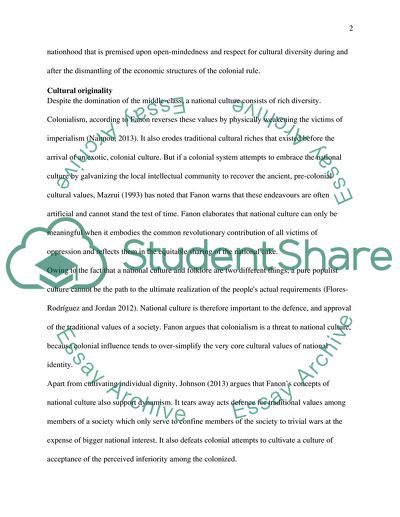Cite this document
(“Explain, discuss and evaluate the importance of the national culture Literature review”, n.d.)
Retrieved from https://studentshare.org/sociology/1625081-explain-discuss-and-evaluate-the-importance-of-the-national-culture-in-fanons-analysis-do-you-think-it-is-consistent-with-his-overall-theory-of-decolonization-give-historical-and-contemporary-examples
Retrieved from https://studentshare.org/sociology/1625081-explain-discuss-and-evaluate-the-importance-of-the-national-culture-in-fanons-analysis-do-you-think-it-is-consistent-with-his-overall-theory-of-decolonization-give-historical-and-contemporary-examples
(Explain, Discuss and Evaluate the Importance of the National Culture Literature Review)
https://studentshare.org/sociology/1625081-explain-discuss-and-evaluate-the-importance-of-the-national-culture-in-fanons-analysis-do-you-think-it-is-consistent-with-his-overall-theory-of-decolonization-give-historical-and-contemporary-examples.
https://studentshare.org/sociology/1625081-explain-discuss-and-evaluate-the-importance-of-the-national-culture-in-fanons-analysis-do-you-think-it-is-consistent-with-his-overall-theory-of-decolonization-give-historical-and-contemporary-examples.
“Explain, Discuss and Evaluate the Importance of the National Culture Literature Review”, n.d. https://studentshare.org/sociology/1625081-explain-discuss-and-evaluate-the-importance-of-the-national-culture-in-fanons-analysis-do-you-think-it-is-consistent-with-his-overall-theory-of-decolonization-give-historical-and-contemporary-examples.


